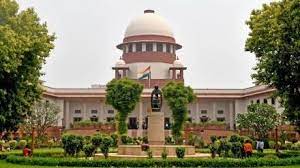
In a significant legal development, the Supreme Court has ruled in favor of the Mamata Banerjee-led West Bengal government’s challenge against the Central Bureau of Investigation (CBI) conducting probes in the state without its consent. This decision comes amidst ongoing investigations into multiple cases including sexual assault and land grabbing on Sandeshkhali island, despite initial resistance from Bengal.
The Supreme Court’s decision marks a reversal after it had earlier permitted the CBI to investigate various cases in Sandeshkhali, despite West Bengal withdrawing its general consent to the agency in 2018. The bench comprising Justices BR Gavai and KV Vishwanathan rejected the Centre’s argument that Bengal’s petition lacked merit, emphasizing its implications on federalism.
The court underscored the provisions of the Delhi Special Police Establishment (DSPE) Act, which mandates that the CBI must obtain consent from state governments to conduct investigations within their jurisdictions. It highlighted that Bengal’s challenge raised fundamental legal questions about the CBI’s authority to register and investigate cases post the withdrawal of consent.
The ruling is seen as a crucial assertion of state autonomy and federal principles, with the Supreme Court acknowledging the validity of Bengal’s concerns regarding the CBI’s jurisdictional overreach. The case is poised to have far-reaching consequences for inter-state relations and the enforcement of federal laws across India.
Meanwhile, the CBI continues its investigations into allegations of sexual assault, land grabbing, and a ration scam involving Shahjahan Sheikh, a former Trinamool leader and local figure in Sandeshkhali. The Bengal government had previously contested the Calcutta High Court’s decision to allow the CBI probe, arguing against the protection of individual interests over state sovereignty.
As the legal battle unfolds, the next hearing in this contentious case is scheduled for August 13. The outcome will likely shape future interactions between state governments and central investigative agencies, underscoring the delicate balance between federal authority and state rights in India’s democratic framework.
Sources By Agencies




